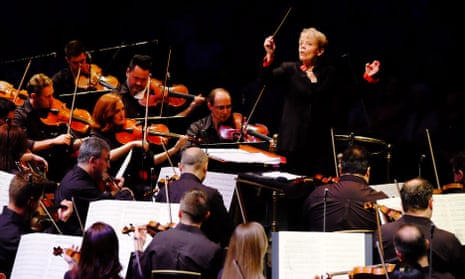By the end of the BBC Proms next week, there will have been 75 concerts this season. Just eight will have been conducted by women, with one woman, Marin Alsop, in charge of three of them. Quite simply, it’s not enough, both in principle and at a time when women are playing in increasingly equal numbers in British orchestras.
Whether by accident or design, four of the eight concerts conducted by women are scheduled in these last days of August. Ms Alsop had charge of two Proms last week with the São Paulo Symphony Orchestra, of which she is principal conductor. At the weekend, Mirga Gražinytė-Tyla made her debut as the new music director of the City of Birmingham Symphony Orchestra, a landmark appointment. On Wednesday, Simone Young, until recently the head of the Hamburg Opera and a far too infrequent presence in British music, will conduct the BBC Symphony Orchestra. It is the only time in its 12 appearances at the 2016 Proms that this taxpayer-funded orchestra has been directed by a woman.
Nor is it just the Proms. London has five permanent symphony orchestras, all full of female players. Yet of the 20 conducting posts at these orchestras, just one is held by a woman – and the temporary post held by the London Symphony’s assistant conductor Elim Chan ends this season. It wouldn’t be acceptable in other professions. It isn’t acceptable here either.
